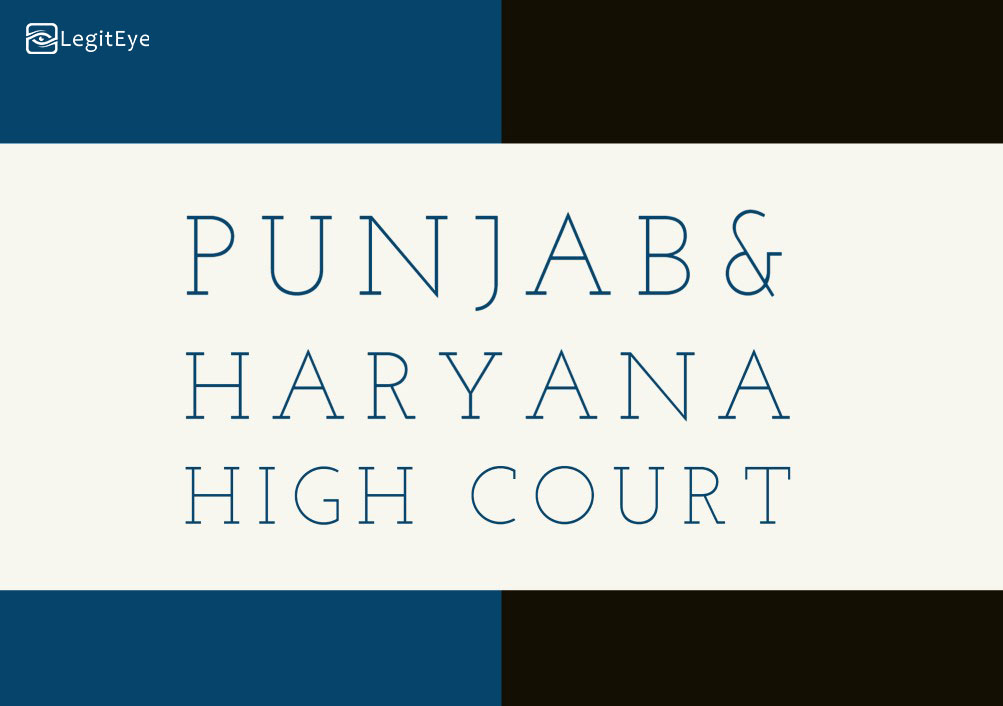In CRM-M-27567-2022 (O&M)-PUNJ HC- Possibility of accused not attending trial and likelihood of fleeing justice can be taken care of by imposing elaborative and stringent conditions, rules P&H HC Justice Anoop Chitkara [29-06-2022]

Read Order: Hardeep Singh @ Kala Khan v. Amit Kumar @ Sonu
LE Correspondent
Chandigarh, July 1, 2022: While dealing with a bail matter, the Punjab and Haryana High Court has recently stated that the possibility of the accused henceforth not attending the trial, and the likelihood of fleeing justice, can be taken care of by imposing elaborative and stringent conditions.
The Bench of Justice Anoop Chitkara placed reliance on the Supreme Court in Sushila Aggarwal, wherein the Constitutional Bench held that unusually, subject to the evidence produced, the Courts can impose restrictive conditions.
Challenging the order of proclamation on being declared a proclaimed offender, the petitioner came up before the High Court under Section 482 of the Code of Criminal Procedure, 1973 (Cr.P.C.).
The accused could not be served through the ordinary process, including summons, bailable warrants, and even non-bailable warrants, thus, the concerned Court finally proceeded against the petitioner under Section 82 of Cr.P.C. and declared the petitioner a proclaimed offender vide an order passed by the SDJM Ratia.
After arguing for a considerable time, the counsel for the petitioner submitted that the criminal justice system must not hamper and suffer because of the petitioner. Thus, he confined the prayers in the petition to the grant of bail on the petitioner’s surrendering before the majesty of the concerned court and reserving liberty to raise the given-up relief in the subsequent petition(s), if the need so arises.
In view of the above, the Court observed that the primary object of service is to secure the accused person’s presence in trial. Also, the fact that the petitioner approached the court on his own, was perceived by the Court to establish his bonafide at this stage. Without adjudicating the explanation offered and the stand taken by the petitioner, the court, in the exercise of its inherent powers under section 482 CrPC, deemed it appropriate to grant the limited relief to the petitioner, subject to the compliance of the conditions mentioned in this order.
Further, the Court also observed that in the present case, the maximum sentence imposable for the offences mentioned in FIR does not exceed seven years. Thus, the Court held that the directions passed in Arnesh Kumar v. State of Bihar, apply to this petition, wherein Supreme Court directed all the State Governments to instruct their police officers not to arrest the accused automatically when the offence is punishable with imprisonment for a term which may be less than seven years or which may extend to seven years; whether with or without fine.
Also, Justice Chitkara asserted that the possibility of the accused henceforth not attending the trial, and the likelihood of fleeing justice, can be taken care of by imposing elaborative and stringent conditions. Reference, in this respect, was made to the case of Sushila Aggarwal (Supra) wherein the Constitutional Bench held that unusually, subject to the evidence produced, the Courts can impose restrictive conditions.
The Court thus held, “There shall be a stay of the petitioner’s arrest in the case mentioned above for ten days… It is clarified that if the petitioner fails to appear before the concerned court within the above mentioned time limit, then this order shall stand recalled automatically under section 362 read with 482 CrPC, without any furtherance reference to this court.”
Sign up for our weekly newsletter to stay up to date on our product, events featured blog, special offer and all of the exciting things that take place here at Legitquest.




Add a Comment